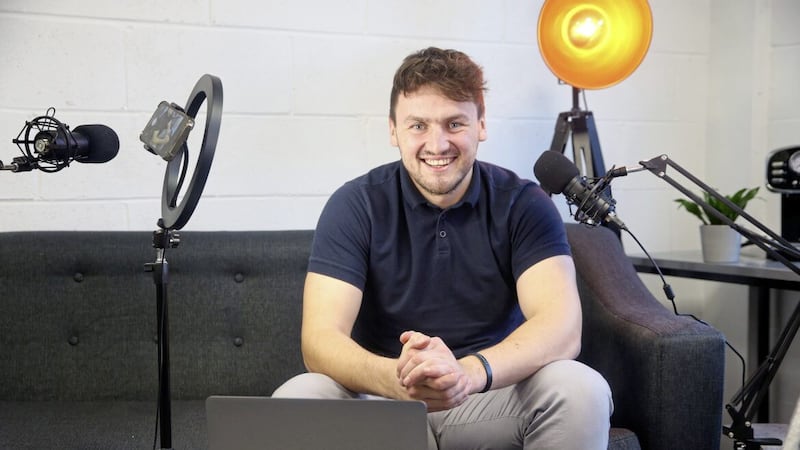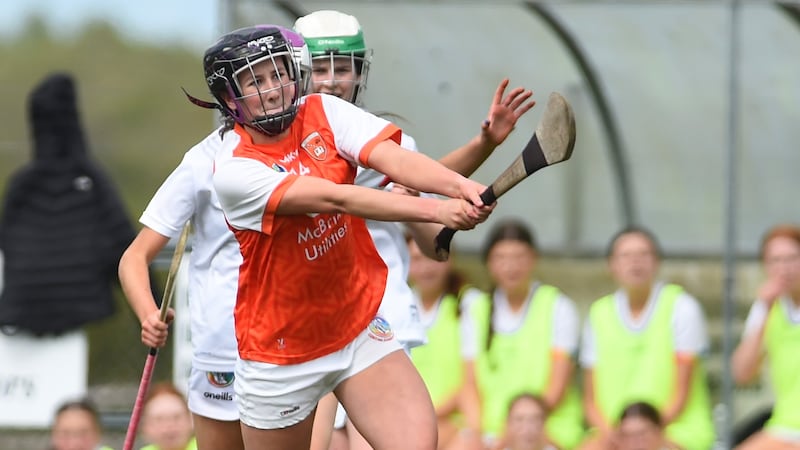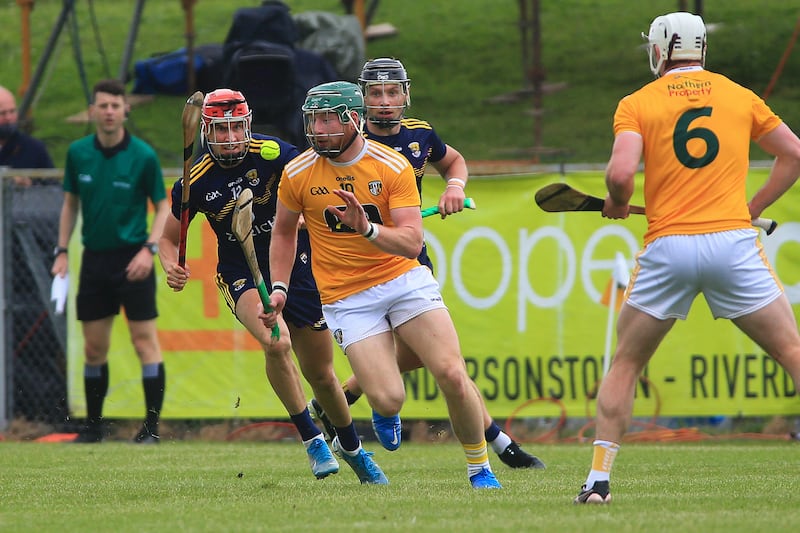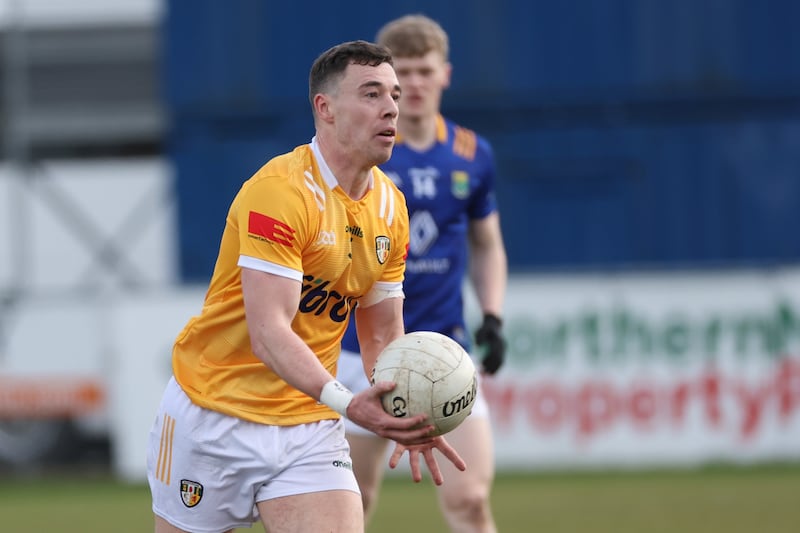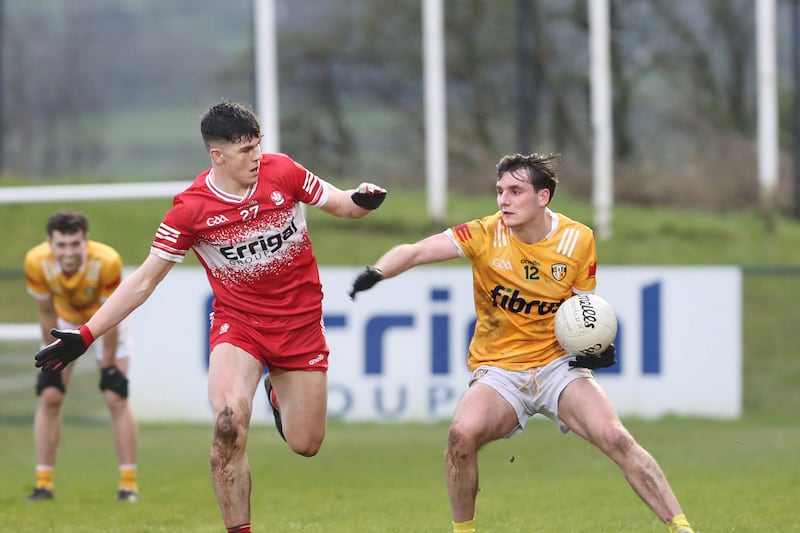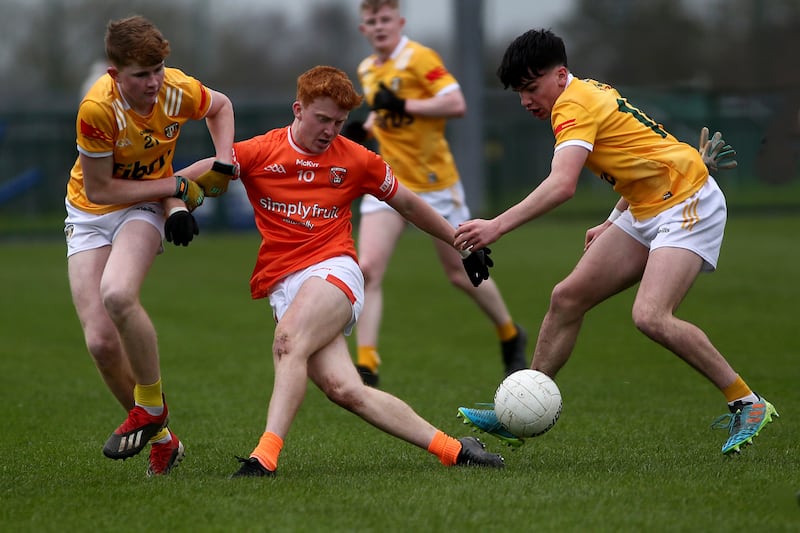DOMHNALL Nugent is the first to admit that things haven’t gone to plan. At least, not the one percolating in his head as Cuan Mhuire addiction treatment centre drifted off into the rear view mirror three-and-a-bit years ago.
Then, at the end of August 2019, his objectives were clear – get back to hurling, back to football, observe the lessons that helped save a soul lost to alcohol and cocaine addiction, the rest will look after itself.
And for a while it did. Nugent was in championship action for St John’s within days of leaving Newry, while the weeks that followed brought a welcome phone call from new Antrim boss Darren Gleeson, keen to bring him back into a county fold only fleetingly graced as a troubled teenager.
Everything was falling into place.
“I had big plans,” he smiles.
“I was convinced that I was going to be ruling the roost with Antrim and it hasn’t really worked out like that…”
While those three months in Cuan Mhuire brought him back from the brink, Nugent had no idea of the potholes peppering the road ahead; the unforeseen twists and turns that require constant navigation, and always will.
Yet, as he sits here now, it all seems so clear. Where one plan ended up bent out of shape, another is finding form. On the hurling field, in order to graduate from impact sub to regular starter, he knows what is required. A large part of getting there dovetails with where he is in life.
But, in the grand scheme - and this is just the way it has to be - commitment to the caman code can only ever come second to his recovery.
“I’ve had to put a lot of work into my recovery in terms of being consistent in everyday life and training because, at the end of the day, I need to constantly have my guard up.
“I’d be driving up the road from work and it could come into my head to go for a drink. I’ve developed tools to deal with that, but it’s a daily thing. It might never leave me and I have had to accept and come to terms with that.
“I still go to AA [Alcoholics Anonymous] once a week, still go to a counsellor once a week. That has to come first. In fairness to Darren, if there’s any nights where I say to him ‘right, I need a meeting’, he gets it.
“I haven’t fulfilled my potential yet, I know that… but I’m only turned 26. People look at me and think I’m coming to the end of my career! Playing with the county nowadays, people don’t realise the commitment it takes. I didn’t realise it.
“It’s not like I don’t have the ability, I know I do, but with inter-county you really need to have your shit together in life to be able to perform.”
He thought he had his shit together - not perfect, but good enough to get by. When he looked around and saw what others were doing, however, only then did it begin to dawn.
“You look at somebody like Neil McManus, and see that he does everything to a tee.
“After the initial story went out about me being in rehab, he came up to me after St John’s played Cushendall and said ‘I loved your story’, then I was called into the Antrim panel and ever since we’ve got really close.
“People like Neil are the people I want to spend time with because he has an amazing outlook on life , and you can see that reflected in how he has a great balance between life and hurling – that’s when you realise what’s needed.
“I was working in HomeFit after I came out of Cuan Mhuire, chasing sales - was that really a thing to be doing, dealing with that stress when you’re already in recovery and trying to get to the level to hurl at inter-county?
“When I moved to selling cars, it was great but I was constantly back and forward to England, sleeping on the boat, getting off the boat at 6am, doing a day’s work, going to county training, maybe picking up a niggly hamstring injury that would put me back two weeks.
“I found it very hard to manage everything. There was no consistency. People think you go to rehab and that’s you done, but it’s a journey with no destination.
“Two years ago I thought I had a really good balance, but now I know I do. I look back at that time and think ‘you’re mad…’”
That lack of consistency had an impact on Nugent’s ability to keep pace with the physical demands of inter-county preparation - though, as with everything else, the lines are slightly blurred there too.
Having to extricate himself from certain social settings, over-compensating on the other side, darkness would often descend when he togged out in front of the mirror the night before a game.
Any comments, insults - either from opponents, keyboard warriors or those behind the white line - would come flooding back in those moments, forcing him to a place he didn’t want to be.
“If I see on social media that the boys are on a night out I’ll be like ‘f**k it’, and go and get a pizza.
“I was really paranoid, really self-conscious about my weight. Even over the summer there I put on two stone when I was injured. I’d still drive myself mental about it at times.
“It used to be that the night before a match I’d put on my jersey, look in the mirror and be like, ‘I still look fat as f**k’. I mean, how much energy does that take up? Loads, because then you’re worrying about what way you look, about what Jimmy standing over on the hill thinks.
“Jimmy might have played for Antrim, might have been a great hurler himself, but he has no idea what’s going on in my life. He pays into the matches and he supports Antrim, that’s great, but why should I be worrying about his opinion?
“Boys still go on Twitter, looking to see if anybody’s slabbering about you. I used to go on the discussion boards and stuff – loads of players do that. You wouldn’t believe it.
“But where I’m at now is actually better for my hurling, because I don’t see it as the be all and end all, which takes pressure off and will hopefully make me play better.
“In those first couple of years I spent a lot of time wondering was I good enough or, if I was starting, thinking ‘I’m going to make a mistake’, looking over at Gleeson wondering was he going to take me off… all those things.
“The reality is one day hurling will come to an end, and what do I really want to be remembered for? I feel like now I truly know myself, what makes me tick, what annoys me, and how to do what’s right for me.”
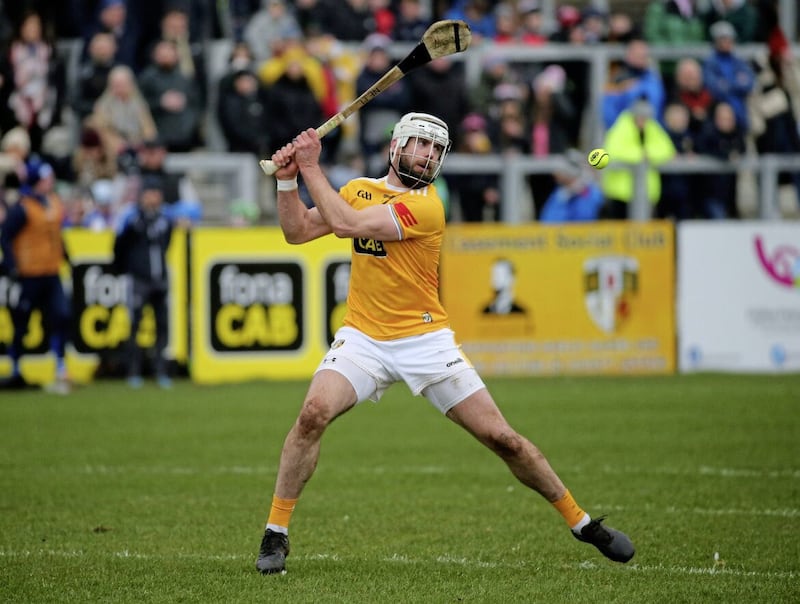
That’s the critical part of it all. While work life once had him on the shop floor, or lumping timber around the yard, that energy is being channelled into areas where his experiences can make a difference to others.
Last summer life came full circle when he began a new role as an addiction facilitator at Cuan Mhuire, three years after walking through those same doors at his lowest ebb. And then there’s Let’s Face It.
What started out as a shot to nothing podcast has evolved into something much more meaningful, to him and to those who have benefitted from conversations with guests from all walks of life.
Talking saved him, and he believes it can do the same for others.
“I love it. I never thought I would because I wasn’t sure about me actually doing it, talking to these different people.
“The hardest thing a human being can do is be vulnerable - a lot of people don’t want to go there but the whole reason I started up Let’s Face It is because a lot of people were messaging me on Instagram or Facebook looking for help or advice.
“It probably had a bit of an impact on my recovery because I was absorbing whatever was going on with them too. You learn from that.
“But the podcast is creating a space where people can feel comfortable about opening up and talking about their problems. Honestly, it’s the best thing I’ve done. Two years ago I thought I had a balance in my life, but now I have a purpose.
“The way I look at it, I still have hopefully three quarters of my life left – instead of letting the first quarter, and the problems I had, dictate the next three quarters, why not use my first quarter as ammunition to help other people in their lives, so they’re not feeling like they’re alone or that there’s no way out?
“I’d have strong faith, but AA and rehab was all very much ‘hand yourself over to God’ - it worked for me, but it might not work for a lot of people of my generation. My idea is that we should embrace recovery, that we should be excited about who we want to become.
“Why not make that prospect a bright one instead of something so solemn? I have a vision for this. I would love to have my own treatment centre one day, where you can get people like I was and show them you can find a better quality of life.
“That’s my dream.”
Let’s Face It merchandise was launched before Christmas, a new website will go live in the coming weeks, while on Thursday, January 12 Nugent hosts ‘An evening with a purpose’ at Culturlann, where he will be joined by the likes of Neil McManus, personal development coach Annette Kelly, Tyrone footballer Conor Meyler and boxer Michael Conlan.
Even if an ankle injury wasn’t keeping him sidelined for the foreseeable, Nugent would be pushing on with his plans regardless - because helping others is helping him too, both on and off the field.
“Hurling’s a massive part of my life, of who I am. It makes me feel valued, your self-worth goes up, connections, friends, all of that.
“People maybe see me on Twitter saying I’m doing this podcast, or I’m away doing a talk here, they maybe think my head’s not in it, or like this is all some kind of ego trip…
“That’s not the case. I still feel like I have so much more to give. It’s just that everybody’s journey isn’t the same, this is where mine has taken me - and I wouldn’t change it.”
